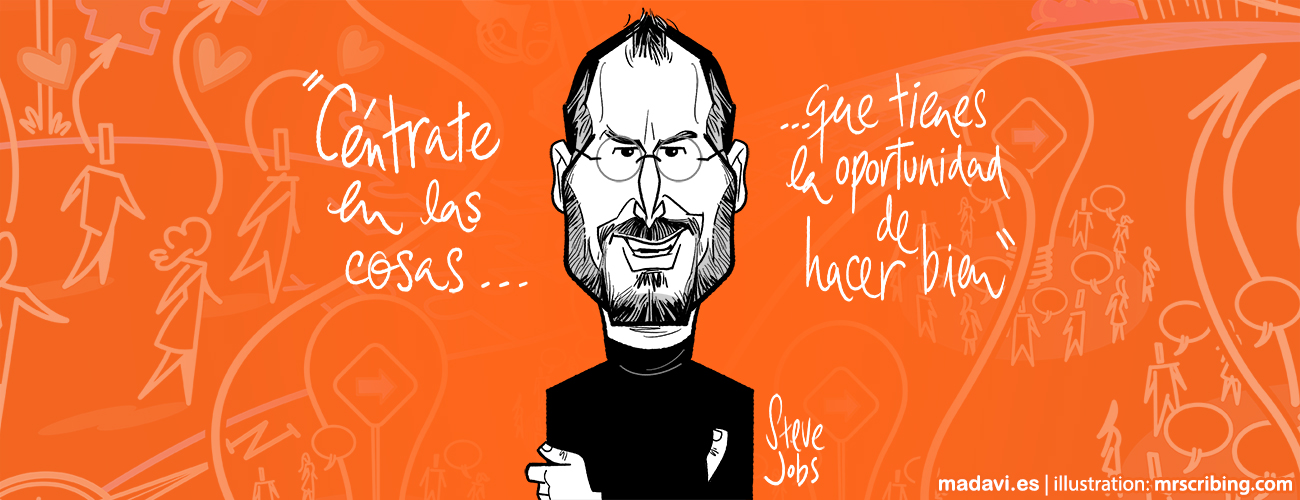Steve Jobs had a great phrase: “ Focus on the things that you have the opportunity to do well”. One of the greatest business leaders looked to strengths not weaknesses.
This is the basis of appreciative inquiry and the methodology we use at Madavi to “change the way in which organizations change”.
Appreciative inquiry is a revolutionary approach to change and growth in organizations; the term “inquiry” refers to the asking of positive questions, while “appreciative” in this context means recognizing the strengths of something or someone.
That is to say that Appreciative Inquiry is based on the idea that organizations change as a function of the questions asked; those organizations that inquire into their problems and difficulties will obtain more of the same, but those that try to discover what is best in themselves will discover how to achieve success.
Why should we think that the growth of a company has to depend on resolving the “problems”? That could be a summary of the line of argument of the father of IA, David Cooperrider
In meetings it is normal to analyze failures and problems. When there is a problem everyone wants to know why. Madavi proposes to inquire into the successes asking: What have you done to have so much success? This question generates a productive conversation. We are so little accustomed to inquire into success that people do not know how to answer quickly, they have to think about it and that is a good thing. They will realize what were the factors that have worked, and “The best of what is” to do it more and better. As a result, the person learns what DOES work and the essential aspects that have made it work. He/she will feel better than if you congratulate him/her because we are considering that person as a source of learning. By asking we are saying I want to learn from you! That is really recognizing the person with capital letters.
This methodology aligns organizations towards a shared attractive image of the future, which will improve productivity, increase the commitment and satisfaction of the people and stimulate the generation of ideas. Any system moves better towards what it DOES want.
Involve the whole organization
We have already talked in several posts about the results that arise by this way of approaching change, such as discovering the assets and strengths, which the organization has, or the joint vision of the future. Today, however, we want to underline one of the principle values of Appreciative Inquiry and the methodology of Madavi compared to other models: involving the whole organization in the change.
It does not matter what position one has in the company each person is in part responsible for success. The participation of all the players, designing their future is fundamental for their transformation. To be part of the process generates commitment and movement.
Simultaneity
A Summit is a collaborative event for many people: 20, 50, 100, 200 or more. When it is celebrated all the people necessary for success are brought together at the same time and the same place to create collective action aimed towards an attractive image of the future.
Throughout our long trajectory we have carried out summits with companies such as LinkedIn, Suntory Schweppes, Danone, Frit Ravich, Evian, Weleda, Mahou San Miguel, Volvo, Pepe Jeans, Eroski, Tactic Consulting, The Motion, Inspiralia, Repsol, Congalsa and Meta 4 amongst others.

